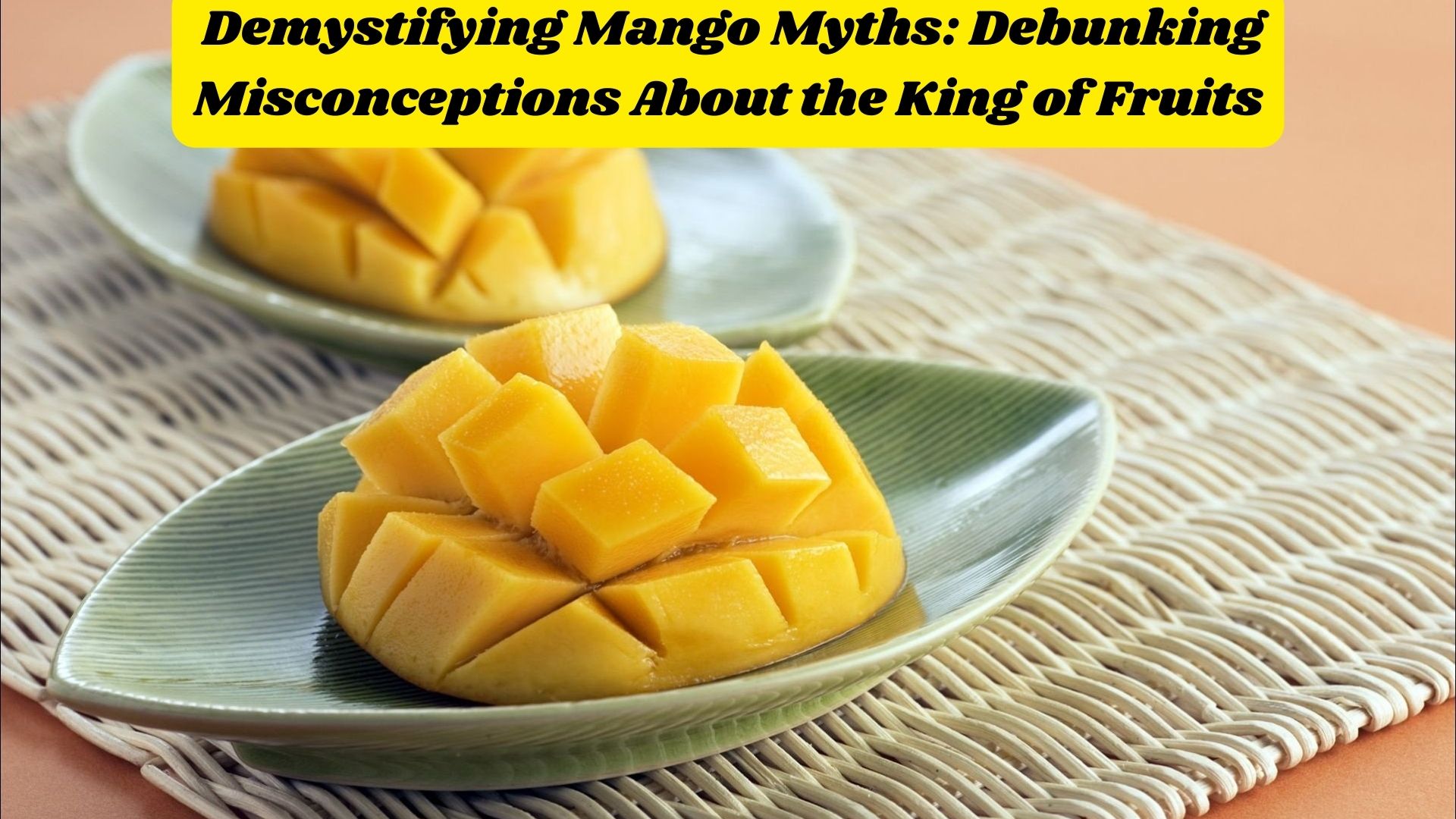
Mangoes, often hailed as the ‘king of fruits’, are cherished for their delicious taste and vibrant color. However, there are misconceptions surrounding their impact on health, particularly concerning blood sugar levels and weight gain, leading to confusion among consumers. If you’re a mango enthusiast who often worries about how much is too much, this article is for you as we dispel some common myths surrounding this beloved summer fruit.
Myth 1: Mangoes Spike Blood Sugar Levels
One common misconception about mangoes is that they are high in sugar content and can cause spikes in blood sugar levels, making them unsuitable for individuals with diabetes or those monitoring their sugar intake. While mangoes do contain natural sugars like glucose and fructose, they also have a low glycemic index (GI) of around 51. Foods with a low GI are digested and absorbed more slowly, leading to gradual increases in blood sugar levels rather than sudden spikes.
The Nutritional Value of Mangoes
Mangoes are not only delicious but also packed with essential nutrients. They are rich in vitamins A and C, which support immune function and promote healthy skin. Additionally, mangoes are a good source of dietary fiber, aiding digestion, and potassium, which helps regulate blood pressure. Despite their sweetness, they have a moderate glycemic index, making them suitable for most diets when consumed in moderation. Enjoy this tropical fruit as a nutritious snack or incorporate it into salads, smoothies, and desserts for a burst of flavor and nutrition.
According to research published in the journal Nutrients, “Mango consumption may even have beneficial effects on blood sugar control. A study conducted on overweight individuals found that incorporating mangoes into their diet for 12 weeks led to improvements in blood sugar levels and insulin sensitivity compared to a control group.” These findings suggest that mangoes can be part of a balanced diet for individuals managing blood sugar levels.
Myth 2: Mangoes Cause Weight Gain
Another misconception is that mangoes are fattening and can contribute to weight gain due to their sugar content. While portion control is important, especially if you’re watching your calorie intake, mangoes themselves are relatively low in calories compared to other fruits. A medium-sized mango contains approximately 150 calories, making it a nutritious and satisfying snack choice.
Furthermore, mangoes are rich in dietary fiber, vitamins, and antioxidants, which can promote feelings of fullness and support weight management efforts. Fiber helps regulate digestion and promotes satiety, reducing the likelihood of overeating. Additionally, the vitamins and antioxidants found in mangoes support overall health and well-being, making them a valuable addition to a balanced diet.
Incorporating Mangoes into a Healthy Lifestyle
To enjoy the health benefits of mangoes without concerns about blood sugar or weight gain, consider the following tips:
1. Practice Portion Control: Enjoy mangoes in moderation as part of a balanced diet. Aim for one serving of mango (approximately one cup of diced fruit) per sitting to avoid excessive calorie intake.
2. Pair with Protein and Fiber: Balance the natural sugars in mangoes by pairing them with protein-rich or fiber-rich foods. For example, enjoy mango slices with Greek yogurt or add them to a salad with leafy greens and lean protein sources like grilled chicken or tofu.
3. Choose Ripe Mangoes: Opt for ripe mangoes that are fragrant and yield slightly to gentle pressure when ripe. Ripe mangoes tend to be sweeter and more flavorful, allowing you to satisfy your sweet cravings without the need for additional sugar.
4. Be Mindful of Added Sugars: Avoid mango products that contain added sugars, such as mango juice or canned mangoes in syrup. These products can contribute excess calories and sugar to your diet, undermining your health goals.
By dispelling these myths and incorporating mangoes into a balanced diet, you can enjoy this delicious fruit guilt-free while reaping its numerous health benefits.
Also Read

2 thoughts on “Demystifying Mango Myths: Debunking Misconceptions About the King of Fruits”